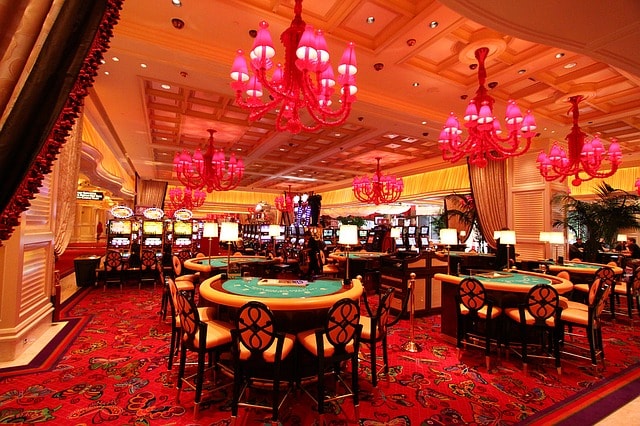
Such attraction of casino games has enchanted huge numbers of people around the planet for decades. From the whirling roulette wheel to the melody of shuffling deck of cards, the thrill of fortune and expertise merges to create an thrilling atmosphere that attracts players in. These activities are not just hobbies; they have evolved into an valuable part of the leisure industry, growing into a universal phenomenon that encompasses opulent resorts, colorful online platforms, and all that lies in between.
As the need for one-of-a-kind and engaging experiences keeps to expand, the narratives behind the success of casino games reveal a intriguing realm. Businesspeople and designers are continuously extending the limits of imagination and originality, leading to the emergence of fresh gaming options and engaging tech. Exploring these accounts provides us insight into the requirements to create a gaming enterprise and the passion that motivates those behind the scenes.
The Development of Gambling Games
Casino games have a vast history that dates back centuries, with their origins frequently linked with ancient rituals and communal events. The initial types of betting can be linked back to ancient China, where dice games were enjoyed, and also to the Roman Empire who enjoyed betting on different events. Over time, these primitive forms of entertainment evolved into more organized forms, resulting in the establishment of titles including baccarat and roulette in the 17th century. These initial gambling games laid the basis for the field we witness today.
As the world evolved, so did the complexity and diversity of casino games. The 19th century marked a significant turning point with the founding of formal casinos in places like Monte Carlo and Las Vegas. J88 đăng nhập This era saw the rise of popular games such as poker and blackjack, which captured the interests of players around the world. The growth of these games was enhanced by advancements in game design and the development of betting regulations that made the industry more regulated and appealing to the general populace.
The technological revolution in the late 20th and early 21st centuries changed the landscape of gambling options yet again. The emergence of the internet led to virtual casinos, enabling players to experience their favorite games from the convenience of their homes. This change not only expanded the reach of gambling options but also introduced new types like live dealer games and mobile gaming apps. Today, the casino game industry continues to develop, with innovative technologies such as virtual reality and blockchain potentially set to reshape the prospects of betting.
Successful Casino Game Creation Strategies
The foundation of a thriving casino game empire lies in the creation of entertaining and innovative games that enthrall players. A winning strategy entails extensive market research to understand existing trends and player preferences. By reviewing user feedback and observing popular titles, developers can identify what connects with players and what features are in demand. Incorporating unique themes, varied game mechanics, and aesthetically appealing graphics are vital to excel in a challenging landscape.
Collaboration is another key factor of successful game development. Uniting talented designers, programmers, and mathematicians guarantees that games are not only visually captivating but also balanced in terms of gameplay. Encouraging clear communication among team members fosters creativity and results in cutting-edge concepts. Moreover, engaging with players during the beta testing phase permits developers to gather insightful insights that can fine-tune gameplay elements before the official launch.
Lastly, effective marketing strategies cannot be dismissed in building a successful casino game empire. Crafting a compelling narrative around the game and utilizing online media platforms to create excitement can greatly impact player acquisition. Offering incentives, loyalty rewards, and participating in community events can also enhance player retention. By combining strong development practices with savvy marketing, game developers can create an immersive experience that keeps players revisiting for additional.
A Outlook of Casino Play
The scene of casino gaming is evolving rapidly, driven by developments in tech and shifting consumer preferences. Digital and portable gaming is prepared to dominate the sector as more gamblers seek convenience and availability. Virtual VR and augmented AR are also making their way into the casino experience, providing immersive environments that elevate traditional gameplay to a different level. As players crave more interactive and entertaining experiences, casinos will need to adapt and evolve to keep their customers engaged.
Additionally, the incorporation of AI intelligence and information analysis will play a significant role in defining the future of casino gaming. Casinos will utilize data to understand player behavior, personalize experiences, and improve client service. Personalization will become important, as gamblers will expect plays that adapt to their tastes and play styles. As the gambling industry makes use of these insights, the development of new play formats and features will likely emerge, keeping the gambling experience fresh and exciting for everyone.
Moreover, the trend towards responsible gaming is becoming increasingly notable. As regulators and players focus more on gambler welfare, casinos will need to introduce measures that promote responsible gaming practices. This could include features that allow gamblers to set limits on their spending and playtime, as well as improved resources for those who may be dealing with gaming issues. By focusing on responsible play, casinos can establish trust with their customers and ensure a sustainable future in the competitive landscape of gambling play.
